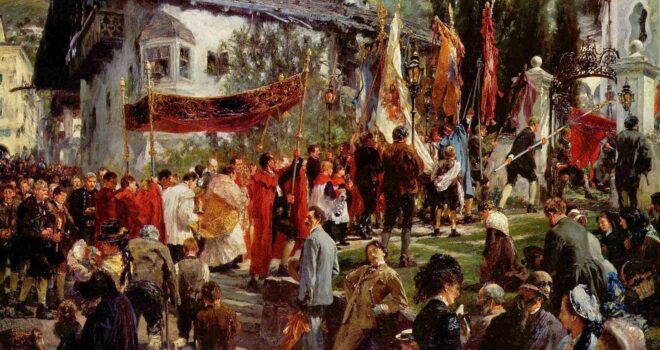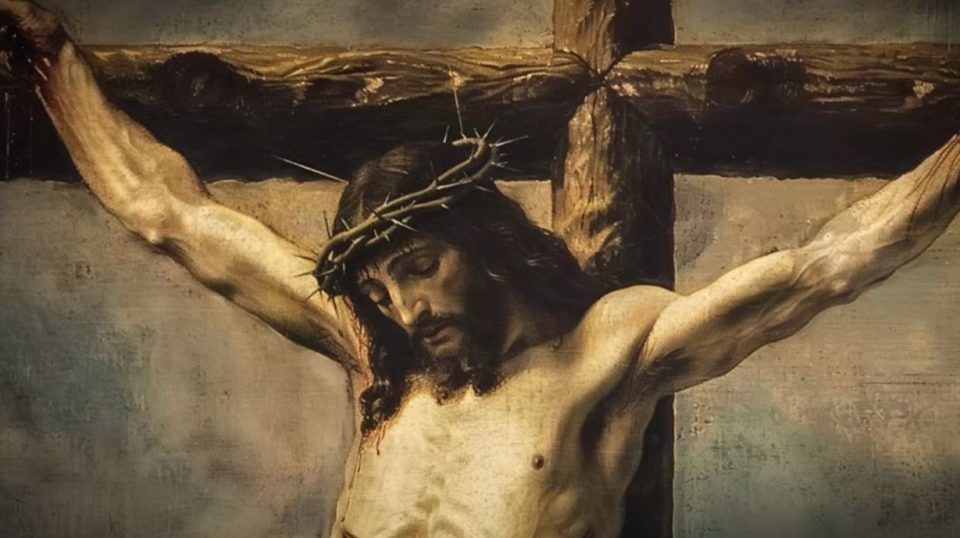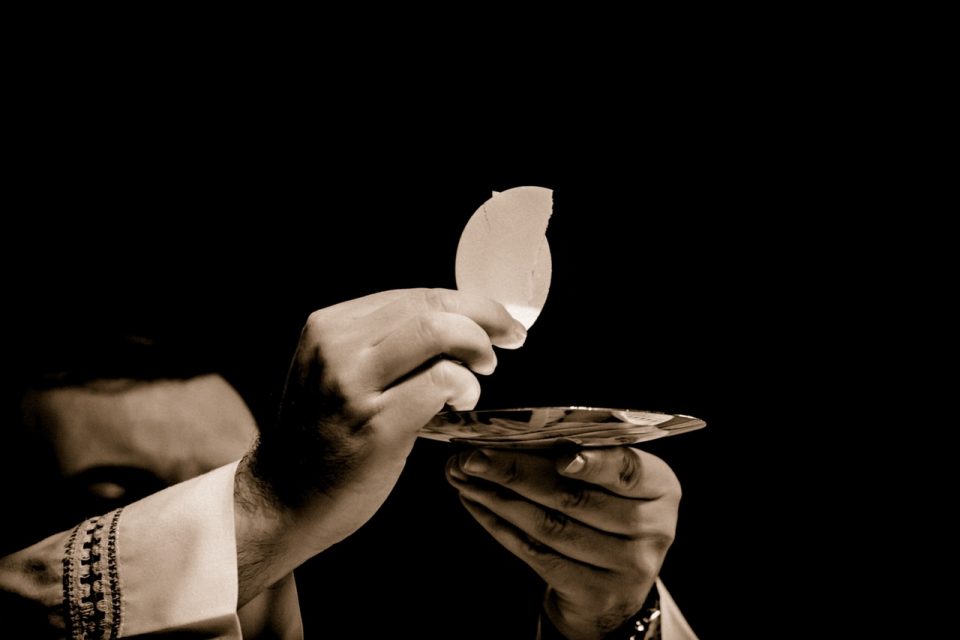By Phillip Campbell, Catholic Exchange, June 16, 2023
Phillip Campbell is a history teacher for Homeschool Connections and the author of many books on Catholic history, most notably the Story of Civilization series from TAN Books. You can learn more about his books and classes on his website, www.phillipcampbell.net. Phillip resides in southern Michigan.
 Throughout the month of June the Catholic world is graced by beautiful processions in honor of the Feast of Corpus Christi. Seeking to honor our Lord’s true presence in the Blessed Sacrament, Catholics everywhere process solemnly with the Sacrament around their cities, parishes, and communities. These processionals range from the simple affairs of small rural parishes to the lavish public spectacles seen in Malta and other European countries.
Throughout the month of June the Catholic world is graced by beautiful processions in honor of the Feast of Corpus Christi. Seeking to honor our Lord’s true presence in the Blessed Sacrament, Catholics everywhere process solemnly with the Sacrament around their cities, parishes, and communities. These processionals range from the simple affairs of small rural parishes to the lavish public spectacles seen in Malta and other European countries.
The procession is a liturgical act that has deep roots in Christianity. Besides Corpus Christi, processions have traditionally been part of Candlemas and Palm Sunday. St. Mark’s Day (April 25) was also the occasion of solemn processions in olden times. To this day, parishes that celebrate the Extraordinary Form of the Mass may be familiar with the Rogation Day processions that occur just prior to the Feast of the Ascension. Funerals, too, were an occasion of processions, which survive today in the long trains of automobiles that “process” from the funeral home to the graveyard. Also, though not termed a procession in the liturgical books, the sprinkling of Holy Water at the beginning of ever Mass can be seen as a kind of procession. ….
Continue reading >>>>







